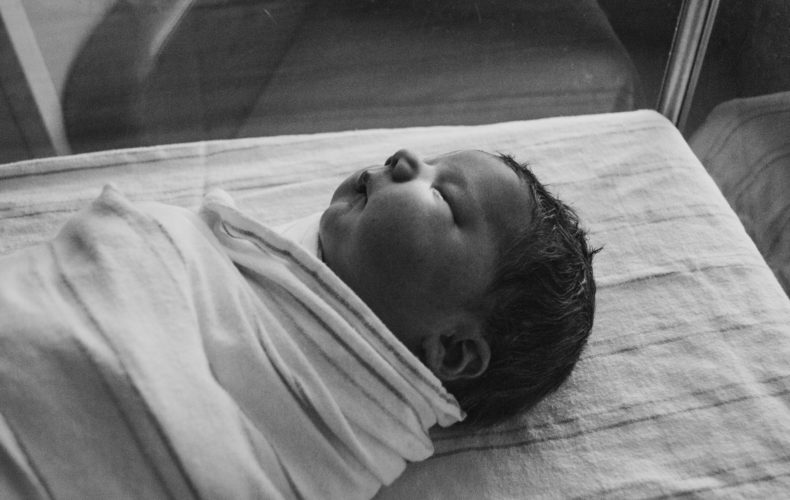45+ GOOD QUESTIONS — for you home birth midwife
This is a list of every question we could think to ask your homebirth midwife. It’s another freaking huge list of questions, guys. You won’t need all of them at first. In fact, most of them you will most likely use as a reference for your choices and options and an understanding of how your midwife practices along the way. We *starred the ones that might be most useful during an interview, but feel free to use this guide as a way to jog your brain to ask the questions that are most important to you.
We suggest you ask open-ended, rather than yes/no questions, wherever possible. “How often do you see…?” “What do families who birth with you usually choose…?” “How will you support us during…?” “What are your policies regarding XXX procedure or situation…?” Home- and birth center-based care tends to be far more flexible and personalized than hospital-based so these may give you a better understanding of where your midwife’s experience lies.
1. *How long have you been in practice? How many births have you attended? How many of those births were you the primary midwife?
2. *What is your training and certification (CNM, CPM, PM or Lay-midwife)? What professional associations are you a member of? If you are a CNM how long were you a nurse before becoming a midwife? Did you do other birth or pregnancy work before becoming a midwife? What other services do you provide?
3. *Are you licensed to deliver in my state? If no, why not? Does your status affect your transfer protocol? (Midwives have different reasons for choosing to be licensed or not, make sure their priorities align with yours)
4. *What is the cost of care and what is included? How often are clients reimbursed the full fee by their insurance? Do you work with a billing agency? Do you offer payment plans or discounts for early payment in full?
5. *How do I contact you for questions and concerns during pregnancy? How do I contact you during labor?
6. *How many clients do you take per month on average? Do you have a cap on how many you will take? When do you consider yourself “on-call” for me? What do you do if two families are in labor at the same time?
7. *Do you work with other midwives? Who is your back-up? Who are your assistants and what is their training? Can I provide my own birth assistant? Do you work with a student? How many people can I expect to be on my birth team?
8. *Are you and your team neonatal resuscitation certified? Have you ever had to resuscitate a baby? Are you and your team CPR certified? Have you ever had to resuscitate a birthing person? How recently have you recertified?
9. *Do you recommend doulas? Do you recommend childbirth education classes? Do you work with birth photographers?
10. How often do you recommend acupuncturists, chiropractors and massage therapists?
11. Do you attend VBAC/ VBA2C/ VBA3C / Multiples/ Breech births? How many have you attended? Have you completed extra trainings for those scenarios?
12. *Do you offer water birth? How often do your clients deliver in the water? Does a tub rental come as part of my package? Do you have a recommendation for where to rent or buy your favorite pool? Are you comfortable delivering in my bathtub?
13. *What are your prenatal visits like? How long are they? Where do they take place? How often are they scheduled? May I invite friends and family members to attend?
14. What are your policies or recommendations regarding urine dips, basic blood tests and labs, genetic testing, routine ultrasounds and growth scans, gestational diabetes testing, group beta strep testing, iron levels testing? Are there any you don’t recommend declining? Can you draw blood or will we need to use an outside lab?
15. What is your philosophy on weight gain, nutrition, prenatal supplements, and exercise? We will receive counseling or education on those topics?
16. *Do you provide our birth kit? If not, do you have a preferred supplier? What else will we need to provide?
17. Are there any induction methods that you are comfortable using (stretch and sweep, foley bulb, castor oil, black and blue cohosh, breaking waters) and when might you suggest them? How often do you transfer care for postdates induction?
18. *What is the most common reason that your clients transfer to the hospital? What is your transfer rate?
19. *What is your relationship with area hospitals? Have you been to my nearest hospital before? Are there any local hospitals that you are not comfortable transferring to, and why? Will you remain present if we transfer, and if no, why not? How would my medical records be transferred (digital, on paper, faxed, hand delivered)? Do you have an OB or practice that you refer to for transfers when complications arise during pregnancy?
20. *What do you consider “high-risk”? Under what conditions would you absolutely transfer care? What conditions would make you consider transferring care during pregnancy? During labor? After birth?
21. To what gestation are you comfortable waiting? What is your standard protocol for clients going over 40 weeks?
22. When can I expect you to join me in labor? Will you ever leave a labor? How will you provide support during early labor?
23. How often do you monitor the baby during labor? Is your doppler waterproof? What do you consider a non-reassuring heart tone? How often do you take the birthing person’s vitals?
24. How often do you perform vaginal exams during pregnancy? During labor? What would you say if I refused a check?
25. What tools do you use to help families through the intensity of labor? What would you say if I asked you for pain relief or to be transferred to the hospital for pain relief?
26. Do you carry and administer any herbs and in what situations? Do you carry and administer any medications (Pitocin Cytotec, Methergine) and in what situations? Do you carry and administer IVs and in what situations? What other tools do you bring to births (birth stool, rebozo)? How do you handle a hemorrhage?
27. Do you have any additional training in herbs, homeopathics, essential oils or acupressure for labor and birth?
28. How do you handle a very long labor? How do you handle a precipitous labor?
29. How do you coach families through pushing? What do you do to help minimize tearing? Do you ever let the birthing person or another member of the birth team catch the baby?
30. How long do you usually leave the cord intact? How long are you comfortable waiting for a placenta?
31. What is your philosophy on placenta encapsulation?
32. *Are you comfortable suturing? Under what conditions would you feel a repair requires a hospital transfer?
33. What would it look like to transfer a baby to the hospital if needed after birth? What would it look like to transfer a birthing person to the hospital after birth?
34. Have you ever lost a baby or birthing person and what were the circumstances?
35. *How long do you stay after birth? Will you help my family clean up/break down the birth pool?
36. *How many postpartum visits can I expect? Will all of those take place in my home? What changes if I transfer and deliver in a hospital? Does your visit include care for the baby? Will you be available for well-woman visits?
37. What other postpartum resources do you offer your clients?
38. Can you administer Vitamin K and Erythromycin if we want? Can you administer the PKU test or will we need to see our pediatrician? Will you administer Rhogam if needed? Can you provide us with a hearing screening, and if not, where do you recommend clients go?
39. Is there anything you will need from us to file the birth certificate?
40. What kind of breastfeeding support do you offer? Do you have any extra breastfeeding training or certifications? Do you have local IBCLCs that you recommend?
41. *How would you describe your style of midwifery?
42. *What inspired you to become a midwife?
43. How do your personal birth experiences inform your midwifery work? (Great midwives don’t need to have had children)
44. *What is your philosophy on continuing education?
45. *What are your expectations for your clients?
Questions to ask yourself:
- How does a visit with this midwife make you feel?
- Is the midwife able to fully address any concerns you have? How about the concerns of your partner?
- Do you feel comfortable in their presence? With them in your home?
I also like this list of questions to ask yourself to discern if homebirth is the right choice for your family.
_ _ _ _ _
If you think we missed anything please drop us a line and let us know what to add!
If you aren’t planning a homebirth, or you are doing co-care with an OB or just want to be prepared in case of a hospital transfer you might enjoy this post on Every Question You Need to Ask on Your Hospital Tour
Photo: Bergen Howlett Photography








